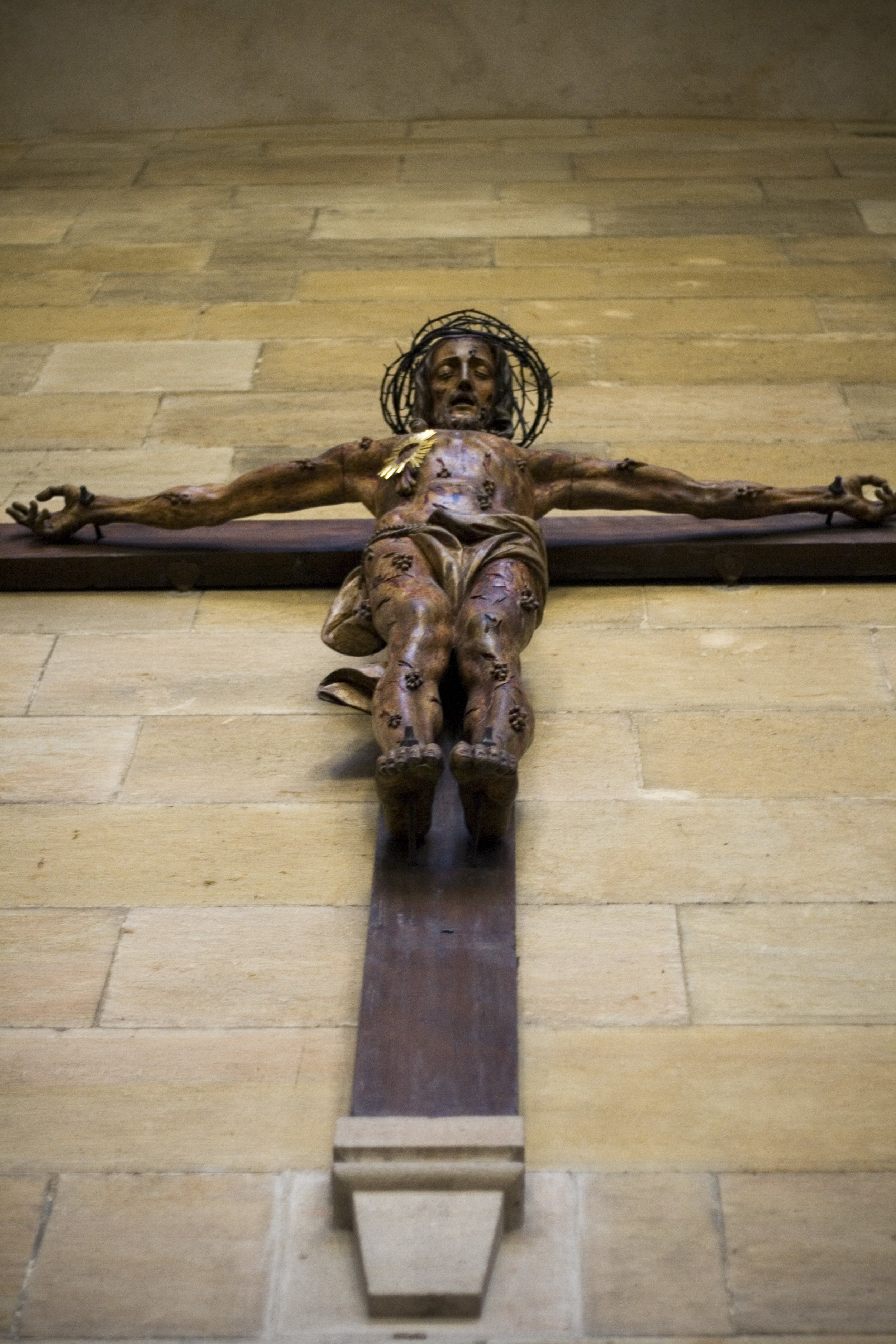Prayers from the Cross
I meet regularly with a group of ladies to study and practice together various spiritual disciplines. This past week I was unable to be there for the whole time but came in just in time to hear the last bit of a discussion on prayer, particularly focusing on prayers that Jesus prayed throughout his life. The prayers that particularly struck me where the prayers from the cross, and as this is Good Friday I thought I would try and share some of the reflections with you.
Jesus’ prayers from the cross:
“My God my God, why have you forsaken me?”
“Father, forgive them, for they know not what they do.”
“Father, into your hands I commit my spirit.”
None of the gospels have all three of these prayers together and so honestly I had never really looked at them together before, but it struck me this time that they go beautifully together and even seem to represent a sort of progression of faith through trials.
It starts with “My God, my God, why have you forsaken me?” We must first be willing to admit openly our own doubt, hurt, anger, sadness and despair. We must be able to admit how alone we feel, how distant God seems. We must be able to be honest enough with ourselves to allow ourselves to question God. My God, my God why have you forsaken me?!?!?!
I truly believe that question is an important one for us to allow ourselves to ask. But, I realized something else too; Jesus spoke the question in Aramaic, which at this time was one of the most commonly spoken languages of the area (if not the most commonly spoken). It never dawned on me until this week how significant that really is. Jesus was open with his questioning of God. He didn’t try to hide it, he didn’t keep it in or under wraps, and when he spoke it he didn’t just speak his question in a way that only a few would hear or understand. He proclaimed it openly and “in a loud voice” in a language that all around him would understand. I think that says something about how we should question and doubt God, and paints a picture of what that might look like that is very different from how we currently approach questioning God’s presence in the church. The church should not be afraid of people’s questions; people should not hide their questions. They should be able to be open and honest with their pain and doubt and questions not just with God, but with the community around them as well.
I think that the path to deeper faith must begin with prayers like “My God, my God, why have your forsaken me?” It is only when we openly admit and acknowledge our deep hurts and feelings in community that we can move forward into healing.
The next prayer is “Father, forgive them, for they known not what they do.” This is a difficult prayer to pray. But, often in trial after we admit our pain and questions, in order to move forward we need to seek out forgiveness for ourselves and for those who have wronged us. One of the ladies in our group pointed out how rarely we really pray for GOD to forgive someone who’s wronged us. We know that we need to work to forgive them, but do we ever pray for God to forgive them? Do we really want God to forgive them? So, often even once we have come to a place where we can say we forgive those who’ve wronged us we still expect and want God to dish out justice towards them. Asking God to forgive the other who has hurt us takes forgiveness a step deeper and though it is a difficult step it is a step that takes us one step closer to the life of faith – trusting that God knows best and that His love is all encompassing for each and every one of his creatures.
As difficult as these first two prayers can be I think the finally prayer is really the hardest, but it is also the sweetest. “Father, into your hands I commit my spirit!” From that place of doubt, of questioning, of asking, “God why have your forsaken me?” we move to a place of complete rest and surrender. Our Lord is no longer referred to simply as God, but Father. And despite the fact that He may still seem distant and that our circumstances haven’t changed and we haven’t received a clear answer to the deepest questions we ask, there comes a point of faith where we have a decision to make… will we trust? Will we surrender over our control? Will we follow this God that we don’t understand, this God that seems to forsake us at times, this God that calls us to a new and difficult way of living? Will we open our clenched fists and allow God to take us wherever He leads us, through whatever He leads us, trusting that He is love? Will we join Jesus in praying “Father, into your hands I commit my spirit”?
Rejoicing in the journey - Bethany Stedman
